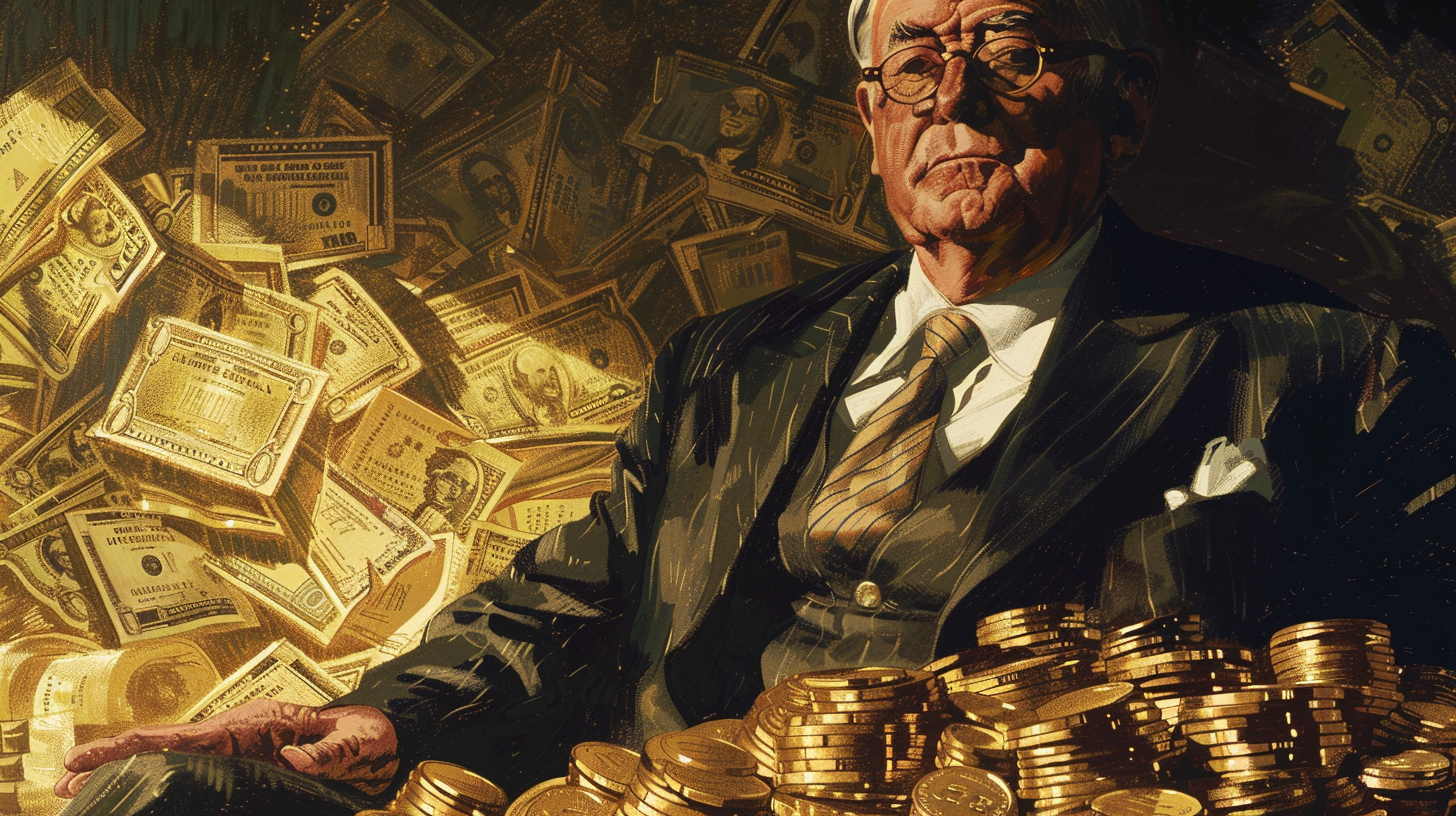The Problem with TIPS
By Dennis Miller from Casey Research
If the “World Snake-Oil Salesperson Society” had a hall of fame, good old Uncle Sam would be a charter member. When it comes to smooth-talking folks into buying debt instruments, he’s the slickest around.
And Treasury Inflation-Protected Securities (TIPS) are one of his slickest gimmicks.
Here’s how the federal government describes TIPS:
Treasury Inflation-Protected Securities (TIPS) are marketable securities whose principal is adjusted by changes in the Consumer Price Index. With inflation (a rise in the index), the principal increases. With deflation (a drop in the index), the principal decreases.
The relationship between TIPS and the Consumer Price Index affects both the sum you are paid when your TIPS matures and the amount of interest that a TIPS pays you every six months. TIPS pay interest at a fixed rate. Because the rate is applied to the adjusted principal, however, interest payments can vary in amount from one period to the next. If inflation occurs, the interest payment increases. In the event of deflation, the interest payment decreases.
When a TIPS matures, you receive the adjusted principal or the original principal, whichever is greater. This provision protects you against deflation.
Sounds like a surefire winner, right? If inflation goes up you’re protected, and if deflation occurs, you’ll still earn interest on the original principal.
When TIPS were introduced in 1997, my broker suggested them to me. My response was, “Okay, I’m the lender, right? And the amount of the loan, the interest rate, and the time frame are fixed. The only variable is the size of the final principal payment based on the inflation rate determined by the Consumer Price Index (CPI), and the borrower gets to keep score? I don’t think so!”
Let’s look at the details. Both the interest and principal growth are taxed. If the government calculates the inflation and pays out a net 4%, the investor must pay federal income tax on the income. That sure seems like a guaranteed way not to keep up with inflation!
And the picture gets even worse in today’s economic climate. The government’s version of the inflation rate, which it uses to adjust the interest and principal payments, is currently 3% – but that’s really a lowball estimate. In the last few decades, the government has significantly changed how it calculates inflation. Using the government’s 1990 method, Shadowstats reports that the true inflation rate is really 6.2%, which is a much more realistic figure. If that’s the case, the loss of buying power to inflation is even greater. Not only does the investor lose to inflation by being taxed on the income, he also loses because the true inflation rate is higher than the government’s rate. This results in a final principal payment lower than the true inflation rate. I would call that a double-barreled loser!
The government has changed its method of calculating the many times, and I urge readers to visit John Williams’ ShadowStats website to see how. He clearly explains why true inflation is much higher than the figures the government calculates and reports.
I recently spoke with John, and he believes many consumers are under the illusion that the CPI is based on a constant basket of goods, and that their respective price changes are measured over time. In his research, he outlines substitutions the CPI has made and the political significance of those changes.
In 1949, Benjamin Graham wrote an investment bible called The Intelligent Investor, and many pundits and advisors reference his work to justify their recommendations. Graham passed away before TIPS were introduced, but Jason Zweig has added some significant comments to the most recent publication of Graham’s book, including a discussion on TIPS.
Because of the taxable nature of TIPS, Zweig suggests owning them inside an IRA or some other type of tax-sheltered account. He offers the following notes on TIPS:
In one easy package, you insure yourself against financial loss and the loss of purchasing power.
Either directly or through a fund, TIPS are the ideal substitute for the proportion of your retirement funds you would otherwise keep in cash.
For most investors, allocating at least 10% of your retirement assets to TIPS is an intelligent way to keep a portion of your money absolutely safe – and entirely beyond the reach of the long, invisible claws of inflation.
I would have agreed with the author when he wrote the book, but times have changed.
Most successful investors have a couple of things in common. First, they’re not blinded by smokescreens and can see things as they really are. Second, they understand cause and effect. I suspect Graham, who had both of these qualities, would see TIPS for what they really are. When one applies these two principles to TIPS, a few conclusions become clear.
• TIPS won’t protect against inflation if they’re not held in a tax-sheltered account.
• If the government adjusts the principal of TIPS based on the inflation rate, the best an investor can hope for is to stay even with inflation.
• If John Williams’ inflation numbers are accurate, a TIPS investor risks losing a good portion of his life savings to the ravages of inflation.
Unfortunately, financial planners tend to perpetuate the myth that TIPS adequately protect against inflation. Recently, when I asked a Certified Financial Planner at a major brokerage firm how he protected his clients from the potential ravages of high inflation, he said he recommended TIPS. When I asked if they were doing anything else, he answered, “Not really.” Several of my friends with managed accounts have also said their money managers “protect” them with TIPS.
Many financial planners simply take all of a client’s financial information and plug it into the company computer, which then produces a report outlining a suggested financial strategy. If the person writing the computer program plugged TIPS into the formula, that’s among the items a final report may suggest. If your planner insists that any of your money should be invested in TIPS, I would certainly ask for a solid explanation.
In my opinion, TIPS do the opposite of what they’re supposed to do. With inflation on the rise and some creative accounting on the part of the scorekeeper, I think TIPS are a terrible investment. I urge every reader to do his own due diligence. Questioning financial planners and money managers may lead to some stressful conversations, but the risk of losing a large portion of your nest egg to inflation warrants taking the time to educate yourself by demanding answers.
Many friends have asked me what they should invest in to protect themselves against inflation. Unfortunately, they’re looking for an easy answer that doesn’t exist. Only a combination of investments can accomplish the goal.
Many readers may remember an entertainer named Alex Karras who also played professional football for the Detroit Lions. At the time, the Lions had a terrific defensive team and a horrible offense. When a reporter asked Karras for his prediction on the upcoming season, he replied, “I predict we will play to a lot of scoreless ties!”
If you’re heavily invested in TIPS, a scoreless tie is the best you can hope for. We have much higher aspirations.
How I Realized the Government Lies about Broccoli
As a kid, I was led to believe the federal government was close to God. If a report came out from the government or even Walter Cronkite, no one considered questioning its authenticity. It was fact.
But somewhere in my 20s, I actually started to think for myself a bit more and question certain things, including the government and its messages.
It all started with a headline-making government report. Apparently if I didn’t eat broccoli – I mean at least two big helpings each week – I was certain to die of cancer by the end of the decade. Now, I hate broccoli. I hate the taste of it, the smell of it, and even the idea of having to eat it to survive. I began to suspect something was fishy.
Shortly thereafter, there was a big editorial about Washington lobbyists corrupting America. I looked down the list and sure enough, there was a big broccoli lobby. Bingo! The broccoli lobby had corrupted the research process in the US. It bought and paid for the study that published the data indicating I had to eat two big helpings a week to avoid an early deathbed. Wasn’t it that same broccoli lobby that paid someone to dump truckloads of broccoli on the White House lawn when Bush the First was president?
That was a traumatic day for me, realizing that the federal government could be paid to educate the public about something that wasn’t true… particularly regarding broccoli.
I’ve finally concluded that any government that will lie to its constituents about big things like broccoli will think nothing of lying to them about little things like unemployment numbers, the inflation rate, nuclear weapons in Iraq, or the Vietnam War. Once it gets comfortable lying about the big stuff, the little ones come easy.



 Beneath the veneer of headline job gains, the American economy teeters on the brink: native employment dwindles as part-time and immigrant jobs surge. Government hiring camouflages looming recession warnings. Inflation and political blunders worsen the crisis, fueling public outrage at the establishment’s mishandling of the economy.
Beneath the veneer of headline job gains, the American economy teeters on the brink: native employment dwindles as part-time and immigrant jobs surge. Government hiring camouflages looming recession warnings. Inflation and political blunders worsen the crisis, fueling public outrage at the establishment’s mishandling of the economy. On April 5 1933, Franklin D. Roosevelt abandoned the gold standard, wielding questionable legal power amidst America’s dire economic depression. His whimsical approach to monetary policy, including coin flips and lucky numbers, unleashed unprecedented inflation and price increases that have since amounted to nearly 2500%. Our guest commentator explores this tragic history and the legacy […]
On April 5 1933, Franklin D. Roosevelt abandoned the gold standard, wielding questionable legal power amidst America’s dire economic depression. His whimsical approach to monetary policy, including coin flips and lucky numbers, unleashed unprecedented inflation and price increases that have since amounted to nearly 2500%. Our guest commentator explores this tragic history and the legacy […] Welcome to the world of modern economics where the term “inflation” no longer signifies the increase in the quantity of money, but has evolved into a plethora of buzzwords. From “shrinkflation” to “greedflation,” these new terms and semantic shifts are by no means harmless but a manipulation of popular sentiment. Von Mises said they play […]
Welcome to the world of modern economics where the term “inflation” no longer signifies the increase in the quantity of money, but has evolved into a plethora of buzzwords. From “shrinkflation” to “greedflation,” these new terms and semantic shifts are by no means harmless but a manipulation of popular sentiment. Von Mises said they play […] Assuming CPI measurements are not understatements, the dollar’s value has plummeted by a staggering one-fifth since 2020, yet, rather than acknowledging its role in fueling this economic turmoil, the Biden administration deflects, casting capitalism and corporate greed as the villains. The latest February CPI data show more signs of the upcoming inflation bloodbath.
Assuming CPI measurements are not understatements, the dollar’s value has plummeted by a staggering one-fifth since 2020, yet, rather than acknowledging its role in fueling this economic turmoil, the Biden administration deflects, casting capitalism and corporate greed as the villains. The latest February CPI data show more signs of the upcoming inflation bloodbath. The Federal Reserve is often viewed as a neutral guardian of the economy, tasked with safeguarding employment and ensuring stable prices. However, the Fed is run by individuals who, like anyone else, are swayed by certain motivations. Do the people behind the Fed truly have the incentive to remain impartial? Our guest commentator demystifies the […]
The Federal Reserve is often viewed as a neutral guardian of the economy, tasked with safeguarding employment and ensuring stable prices. However, the Fed is run by individuals who, like anyone else, are swayed by certain motivations. Do the people behind the Fed truly have the incentive to remain impartial? Our guest commentator demystifies the […]
Leave a Reply